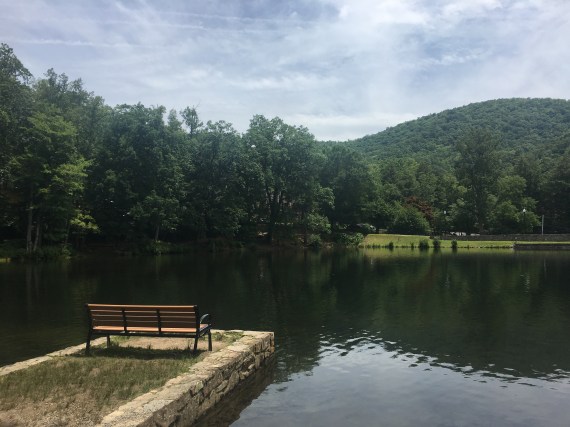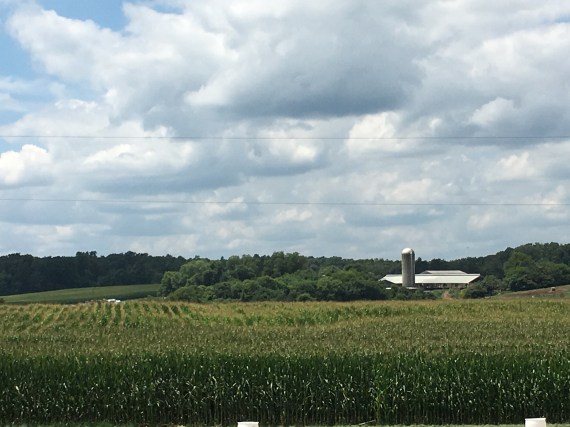I preached the following sermon for the ordination and installation of a dear friend. (Installation means the official beginning of one’s ministry at a church.)
Texts: 1 Samuel 3:1-20
Ephesians 4:1-6
***
Long ago, in a land far far away, it was a gloomy and lonely time.
“The word of the Lord was rare in those times,” we read in 1 Samuel.
As the story of Samuel begins, it stands in the shadow of the ending of the previous book, the book of Judges. “In those days,” we read in Judges, “there was no king in Israel; all the people did what was right in their own eyes.” (Judges 21:25)
To the Biblical writers, the position of having each person decide what is right for himself or herself is not a good place to be.
Leadership is rare in this disorganized time about which we read, this time of “no king in Israel.” The word of the Lord is rare. Every person does what is right in his or her own eyes. Those who have the strength and capability for leadership use their position for their own gain.
There is much evil in this situation — read a bit earlier in 1 Samuel about the priests in their prime, scamming the people and filling their own bellies. It is like the “wild west,” or like a post-apocalyptic movie such as Mad Max or Waterworld.
In this difficult situation, who is going to hear the Word of the Lord?
— the average man? probably not. he’s too busy figuring out his own life from day to day, as it says in Judges
— the average woman? it doesn’t look that way. She’s like the average man, just trying to keep it together.
— the priest? no, too busy filling his own dish with choice leg of lamb.
In such an environment how is the word going to break through? This is a time when the word is needed but everyone is disconnected, and disaffected. The word of the Lord would be a shot in the dark in this situation.
We meet a few people in this dire situation. First, an old priest, Eli. Helping Eli and serving in God’s house is a youngster, Samuel.
The elderly Eli knew his sons were in trouble. His sons were the priests filling their own bellies at the people’s expense. God had already spoken to Eli about that.
Eli’s darkness is growing … his eyes don’t work anymore, so his world is dark. He endures a long night of the soul, knowing his sons were doing evil and knowing God was displeased.
The Word of the Lord would be a shot in the dark in this situation. So God waits until dark …. until one dark night.
The boy Samuel needs some help figuring out what is happening. He knows about God, but he does not know God in a personal way. He’s still a youngster, a doorkeeper and a helper.
It takes a while for him to understand. God helps him out … speaking to the boy and also showing the divine presence to him.
Samuel’s job was to open the door of the tabernacle. His job after that fateful night is to open the door and deliver the word of the Lord to his teacher.
Here’s something the boy did not know…. The elderly leader whose eyesight was failing saw, or perceived that God was up to something. Eli was waiting for it. He knew Samuel would have a special role, when Samuel was just a teardrop falling from his mother’s eye. You see, Eli had encountered Samuel’s mother Hannah back when she was a lonely and sad woman, ashamed because she did not have a child in a world that devalued women without children. Eli wasn’t sure about Hannah at first, but then he was able to see that her prayers and her tears were connected to God’s plan.
As I mentioned a few moments ago, Eli also knew his sons were in deep trouble.
So God knows God’s plan, and waits. Eli knows God is up to something, and waits.
The Word is not necessarily comforting to old Eli. Samuel hates to have to bring it to him.
Yet … everything is laid out for Samuel to go and do as he is called… doors have already been opened for the young doorkeeper.
I wonder if the whole business of getting up and going to Eli three times in the middle of the night was part of God’s plan. If somehow it was part of God opening the door for young Samuel. Samuel, as young as he was, could perhaps dismiss an odd feeling that comes and goes in the middle of the night. By speaking three times, God shows Samuel that this is important.
I wonder if there’s some closure and maybe even hope for old Eli. He knows he cannot change the past. Yet he also now knows …. God has a vision for the future. God has provided Israel with hope. As the text says, during this night of revelation, the lamp had not yet gone out. There is still hope.
So who perceives the word of the Lord in the first few chapters of Samuel? A sad woman … a boy …an old man who is blind and disappointed. Unlikely people. Yet they receive new hope.
In our New Testament reading, Ephesians 4:1-6, we read about hope.
Where is the hope today? Where is the Word of the Lord?
Who today does not know God? I’m not necessarily talking about people with no faith whatsoever, maybe more like people who know God is out there somewhere but haven’t had any reason to put their own faith in this seemingly distant God.
Where is the Word of the Lord today?
— People distrust institutions, corporations, evening news … things we trusted 50 years ago. The Word may not be showing up in the places where we are looking.
— Jobs are gone, and the types of work available now have changed.
— Yet people still want to hear something good… hunger to hear good news.
The Word does show up… in unlikely places… amongst people barely even ready to hear it.
Your new pastor is someone who can help you hear God’s word.
(Here I told a story about the new pastor, who had helped a grief-stricken woman name her frustration and her pain. After acknowledging these powerful emotions, others who had found the woman to be “difficult” were able to understand her a little better … or at least were able to anticipate how she would act. So, a door was opened in a situation where people had been closed off from one another.)
What you have here is a person who can open the door for you. Did you hear in the passage from 1 Samuel how little Samuel opened the door of the temple in the morning? That was his job, to open the door to God’s house. Your new pastor will help you open the door. She will not sugarcoat the word of the Lord for you. She will help you to hear it. She will help you to act on it.
She will help you to find hope … hope that begins in unlikely places … like the hope that began with a young man and an elderly man who had lost his sight … like the hope that began in the tabernacle that people didn’t trust anymore …
It’s ok if it takes you a while to hear or understand. Your pastor said it took her a while to hear the call in her own life.
She will help you live a life worthy of the calling to which you have been called.
Doors have been opened already. Young Samuel may have thought he was receiving a vision of something completely new … yet God had already shown Eli some vision for the future.
God has already been in front you of laying a foundation of hope….opening doors that you didn’t even realize you needed to go through. Crossing through some of those door ways can be frightening.
Today, allow God to be at work, opening the door of hope for you.
Lead a life worthy of your calling … you are one body, and there is one Spirit … you have the one hope of your calling.
Thanks be to God for opening the door that leads to hope.









